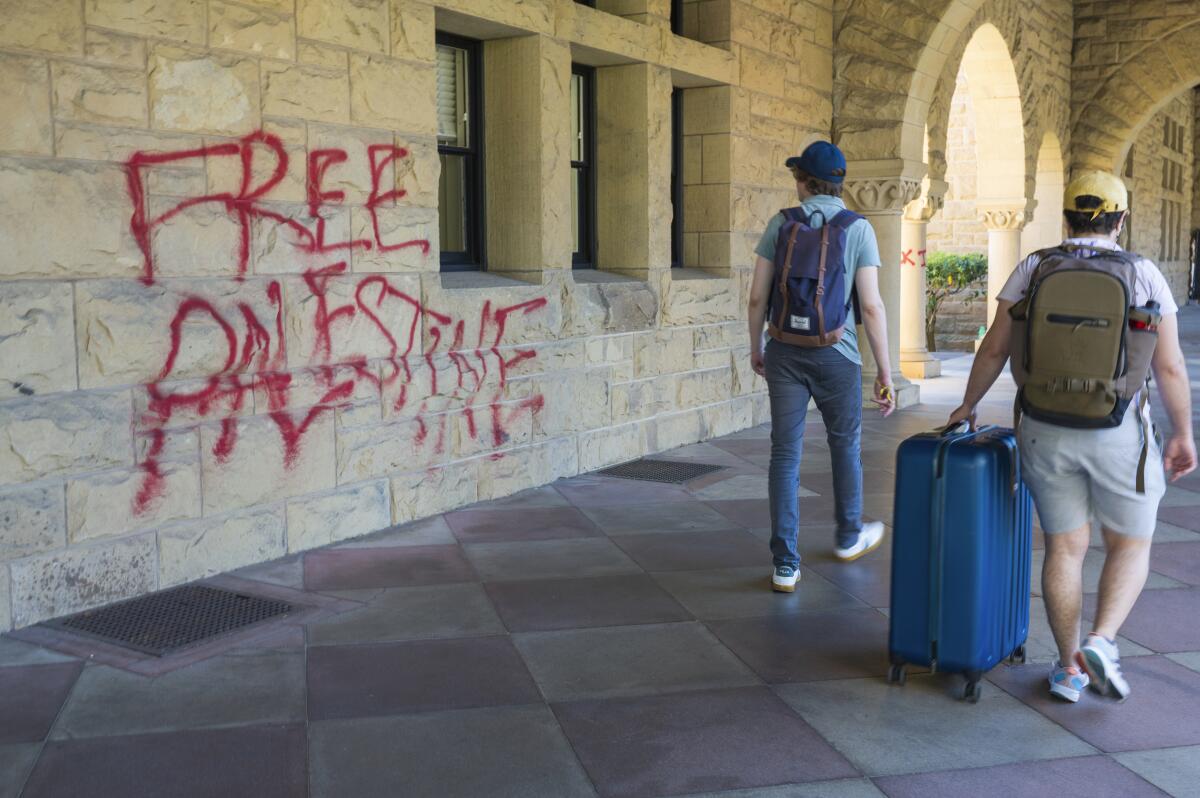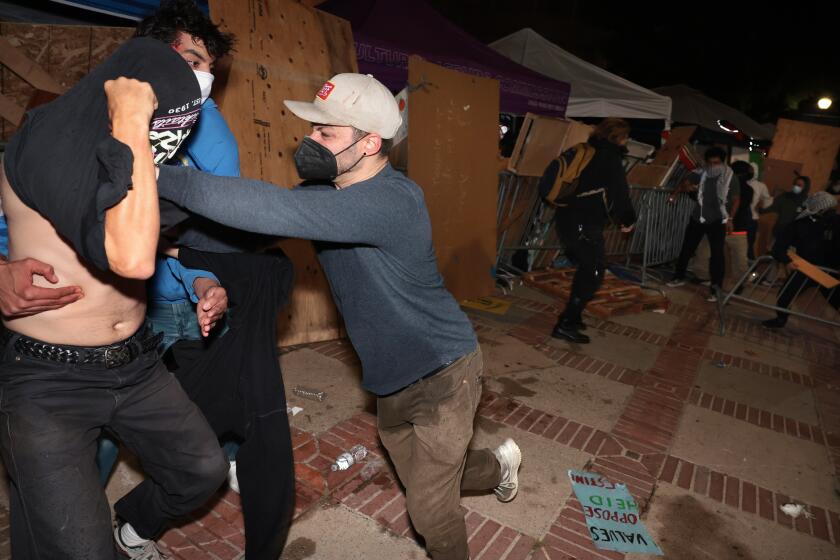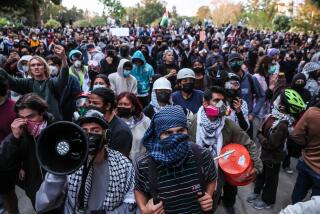Stanford arrests 13 pro-Palestinian protesters, asks D.A. to file felony burglary charges

Stanford University campus police arrested a group of pro-Palestinian protesters, who barricaded themselves inside the presidentâs office, on suspicion of felony burglary charges.
The 13 individuals were arrested shortly after 8 a.m. Wednesday morning after briefly occupying President Richard Sallerâs office in an act of protest. The campus newspaper, the Stanford Daily, reported that one of the individuals arrested is a student journalist.
Arrest records from the Stanford University Department of Public Safety confirmed that the arrests were made on suspicion of felony burglary. But the Santa Clara County district attorneyâs office has not received the case as of Friday afternoon and has not made a decision on what charges will be filed, D.A. spokesperson Sean Webby said.
The series of events started sometime after 5:30 a.m. Wednesday when the group of protesters, made up of students and alumni, took over Sallerâs office, vowing they would not leave until administrators met their demands to divest from Israel.
The incident was the latest of several protests on campuses across the country by pro-Palestinian protesters in response to the war between Israel and Hamas and the killing of thousands of Palestinians caught in the cross fire.
Within an hour, law enforcement officers tried to break open a door and enter the building as protesters outside chanted âFree, Free Palestine.â
By 7:30 a.m., police forced their way into the offices. Police arrested the 13 individuals and all were released from custody several hours later, Santa Clara County sheriffâs spokesperson Brooks Jarosz said Friday.
Most were released on no-cost bail, but a couple posted bail âbecause they didnât want to comply with the conditionsâ from the courtâs pretrial services, Jarosz said in an statement. The amount for those who posted bail was set at $20,000, according to the student newspaper.
Students who participated in the protest were immediately suspended and seniors were notified that they would not be allowed to graduate, according to a statement from the university.
In the joint statement, Saller and Stanford University Provost Jenny Martinez condemned the groupâs actions and said that a safety officer with the campus police was injured during the occupation. There was also âextensive graffiti vandalism on the sandstone buildings and columnsâ in a campus quad with âvile and hateful sentiments that we condemn in the strongest terms,â according to the statement.
âThe situation on campus has now crossed the line from peaceful protest to actions that threaten the safety of our community,â university administrators went on to say.
UCLAâs chancellor on Monday night outlined actions the school is taking in the aftermath of mob violence against protesters on campus last week.
Editors with the Stanford Daily said in an opinion piece that the student journalist who was arrested was âfalsely imprisonedâ while reporting on the protest.
âHis arrest constitutes a threat to the freedom of the press, including protection from unreasonable search and seizure, and we are disappointed in the actions of officers and the University,â the editors said.
Senior Legal Counsel Mike Hiestand, with the 1st Amendment advocacy group Student Press Law Center, said California law bars police from âintentionally assaulting, interfering with, or obstructingâ news gathering.
âWe urge President Richard Saller and Provost Jenny Martinez to recognize the free press interests at stake and immediately work to drop all charges against a student journalist doing their job,â Hiestand said in a statement.
Liberate Stanford, an autonomous group of Stanford University students that organized the occupation, accused law enforcement of âviolently assault[ing] a peaceful student protesterâ as officers prepared to enter the building. It posted a video on Instagram showing a Santa Clara County sheriffâs deputy in a helmet and tactical gear shoving back a student with a baton.
After the students were arrested, the university shut down activistsâ encampment at White Plaza, which officials had allowed to remain even though they said it violated university policies on overnight camping, equitable access to the plaza and use of amplified sound.
Times national correspondent Jenny Jarvie contributed to this report.
More to Read
Sign up for Essential California
The most important California stories and recommendations in your inbox every morning.
You may occasionally receive promotional content from the Los Angeles Times.













